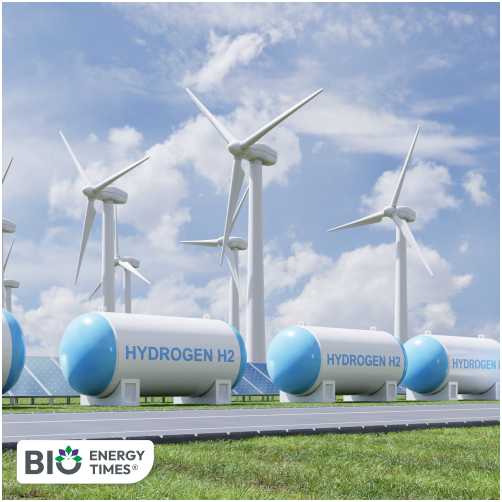Kathmandu: Nepal Oil Corporation (NOC), the state-run entity responsible for importing and distributing petroleum products, has announced plans to begin producing and using hydrogen gas as part of a shift toward cleaner energy alternatives, reports Republica.
Hydrogen, known for being a clean fuel with zero carbon emissions, is gaining traction globally. Now, with growing concerns over pollution and dependency on imported fuels, NOC is preparing to commercially produce hydrogen for domestic use.
Dr. Chandika Prasad Bhatta, Managing Director of NOC, said Nepal’s abundant hydropower resources make it well-positioned to develop green hydrogen. “We have created a high-level plan to transition to green energy,” he said. “In the first phase, hydrogen will be used in vehicles, and later for cooking.”
NOC has partnered with Kathmandu University (KU), which has already successfully tested hydrogen fuel in a Hyundai vehicle on campus. The tests mark an important step toward launching hydrogen-powered transport in the country. “We’ve seen hydrogen successfully power a vehicle here,” said Bhatta. “Now, we aim to begin commercial production.”
He emphasized that Nepal must not delay in embracing hydrogen as an alternative to fossil fuels. “We’ve conducted studies to determine where hydrogen can be used effectively. Based on those findings, we’re planning the next steps.”
Hydrogen can be produced using electricity generated from water, which is then used to split water molecules. This method is well-suited to Nepal’s hydropower capacity. One kilogram of hydrogen can produce up to 50 units of electricity and power a vehicle for up to 70 kilometers. It is also significantly lighter than traditional batteries, making it attractive for transport and industrial use.
Experts see hydrogen as a solution not only for reducing carbon emissions but also for strengthening Nepal’s economy. Since its production relies on domestic resources like water and electricity, it could help reduce petroleum imports and limit the outflow of foreign currency.
Former Chief Secretary Baikuntha Aryal highlighted the potential for hydrogen use in transport and cooking. “It may be costly at first, but Nepal can eventually export hydrogen,” he said, pointing to the possibility of future pipeline exports.
Despite a hydrogen-powered car already being tested in Nepal, it has yet to be officially registered for road use. Experts believe that government support is key to encouraging private sector investment in the hydrogen sector.
Dr. Ram Prasad Ghimire, Secretary at the Ministry of Industry, Commerce and Supplies, said the government must take the lead. “We need to launch pilot projects for hydrogen production, storage, and distribution,” he said. “The focus should be on research and capacity building.”
To support this shift, the government has introduced a Green Hydrogen Policy aimed at encouraging the use of renewable energy sources like hydropower to produce hydrogen. The policy promotes green hydrogen for uses such as making fertilizers, reducing fossil fuel dependence, and fostering a low-carbon economy.
The policy also offers incentives for companies producing hydrogen and its by-products. It includes legal provisions for land access, the construction of transmission lines and substations, and support for carbon trading initiatives tied to reduced emissions.















